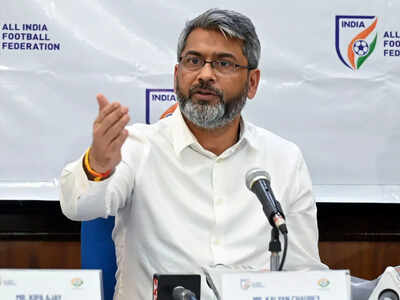His first that summer was an array of individual chats which took place St George’s Park, England’s national football centre, where the team had gathered for medical screenings, outlining his vision. Ever since, they have taken the form of speeches to the whole group – usually a refresher on the values and ethos that have been cultivated (and challenged) over the last two years.
This time, however, Stokes took a different tack. With the team congregating in Queenstown ahead of Thursday’s series opener against New Zealand at the Hagley Oval, the captain stood up and, in his words, “cleared the air with the lads”.
Even with that mitigating factor, the weeks back home allowed Stokes to reflect that the image and negative energy he had projected was at odds with the leader he wants to be. The drive to regain fitness and his visible exasperations were, in his mind, selfish – counter-productive to the calm dressing-room environment he regards as a key pillar for an England side still working itself out.
“It was one of my hardest trips,” said Stokes. “But also one that I’ve hugely benefited from.
“I had my hamstring injury, and as soon as I could get going again, I had a focus on a date to get back. I worked incredibly hard for a very, very long period of time. And then when we got out to Pakistan, obviously pushing and pushing and pushing myself to get ready for that first Test, made a late call and then tried to get myself ready for the second Test.
“I’ve been pretty honest with myself and pretty honest with Baz and the team as well, that I got so individually focused on myself over a long period of time of trying to get back from injury.
“I actually I did physically drain and ruin myself, which definitely had some kind of mental impact on me. I sort of almost worked myself too hard to get back to fitness, and then all of a sudden, I was out in a Test match.
“It’s made me realise that me being a captain, me being the leader of this team, I can’t take myself into that sort of area ever again – focusing on myself so much as an individual. And there’s no doubt that my frustration was showing when things weren’t quite going our way.
“That definitely has an impact on, not only the players around me, but also the group and the management around you as well. Because everyone’s walking on eggshells around you, because they can sense it. But it wasn’t till I got home that I realised that then, obviously, with the robbery happening, that made more of everything for me out there.”
Stokes’ words in Queenstown were understood to be well received, with an encouraging sense that no such apology was necessary, but appreciated nonetheless. So much of Stokes’ captaincy is about looking out for others, whether diverting praise their way or shielding them from criticism.
In a year in which England have lost as many Tests as they have won (seven), along with a destabilising injury and home invasion, falling short of those high standards is only human. Nevertheless, the drive for improvement is admirable ahead of what will be a challenging three-match series against the Blackcaps.
“It was a realisation for me that, right, okay, if I ever find myself in this situation again, I need to maybe take a step back and think about what’s best for the team,” he added. “Because I feel like when you’re in a position that I’m in, you always need to be focused on that, as opposed to yourself, if that makes sense.
“It was nice to get home, relax, chill out … you know, assess Pakistan, individually, which I think should hopefully help the team go forward again. I think it’s another step forward for me as a leader, as well as understanding certain things where I need to be better.”
If Stokes is keen to re-ground himself, he could not have picked a better spot. He was, of course, born here in Christchurch before moving to Cumbria at the age of 12.
He tends to bristle when his New Zealand roots are brought up, mostly through cynicism that his background is often used to discredit his Englishness. But Stokes remains fiercely proud of his Kiwi roots. That was particularly evident when he and Blackcaps skipper Tom Latham led their sides in the Mini Whakatau – a traditional Māori welcoming ceremony – on the Hagley Oval outfield.
England know not to expect as warm a welcome on the field, having failed to land a series win in four consecutive visits since 2008, but things are a little different for Stokes. Family connections remain strong in the South Island’s largest city, led by his mother, Deborah. And while Stokes’ motivation to drive England forward remains strong, the setting adds a unique emotional layer for England’s captain.
“This is a great place to tour for the team, but obviously for myself, it’s more than that,” he said. “It’s a chance to see family, catch up with family who I don’t get to see. You know, pretty much the whole of the Stokes family is in Christchurch. They’re coming down to the Test match this week.
“I came out earlier than the team did to surprise my family. Only a couple of them knew. They managed to keep it secret. So this tour, obviously, is more than just cricket for me. I try and enjoy this country as much as I possibly can. It’s a great place to tour, but, yeah, it’s great for me to be able to see people who I don’t get to see that often. And so there’s more to it for me than there is for everyone else here.”
Vithushan Ehantharajah is an associate editor at ESPNcricinfo





